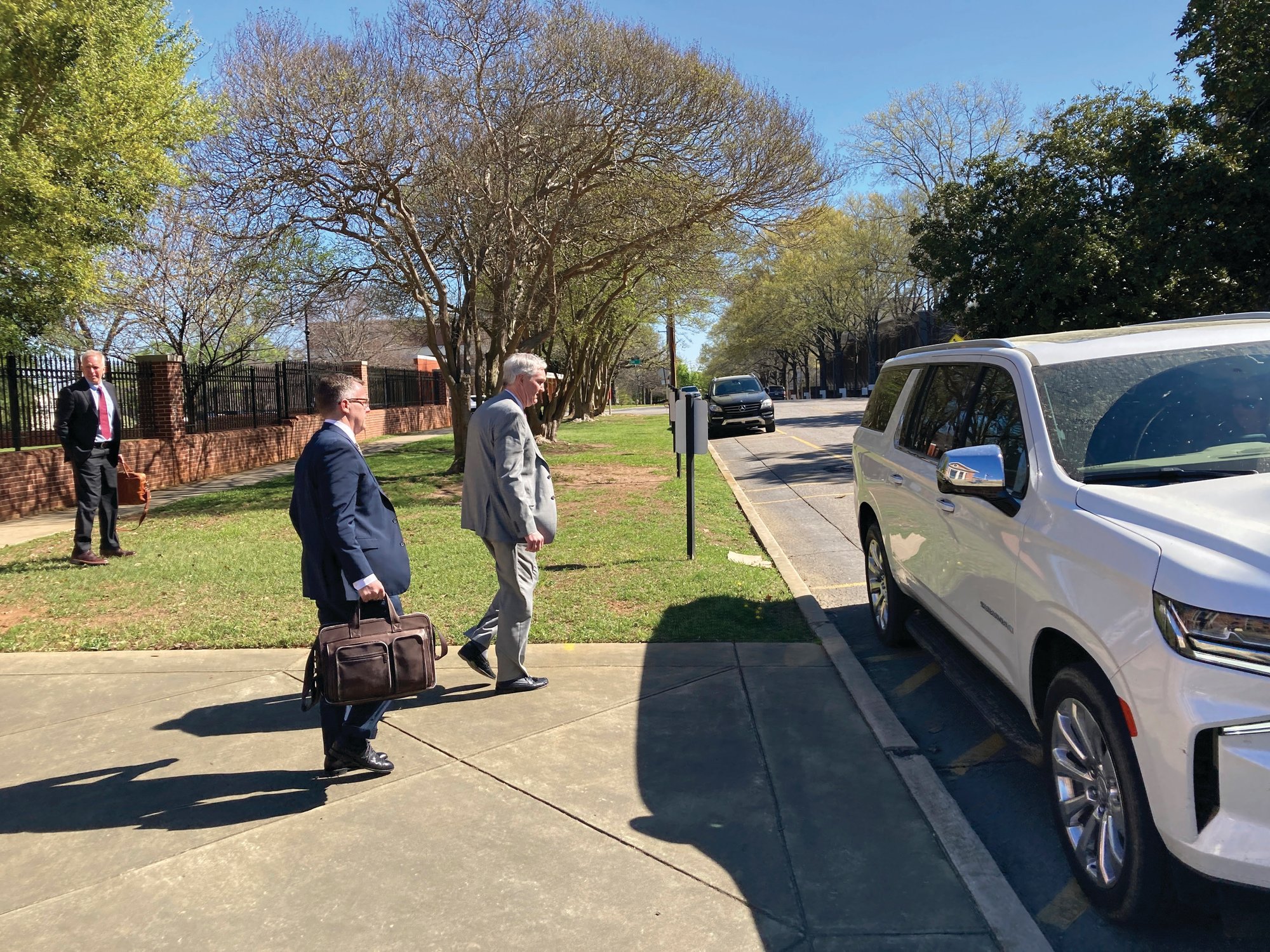Ex-SCANA exec gets 15 months in prison in doomed nuclear project
Associated Press
COLUMBIA - A former utility executive who gave rosy projections on the progress of two nuclear power plants in South Carolina while they were hopelessly behind will spend 15 months in prison for the doomed project that cost ratepayers billions of dollars.
Ex-SCANA Corp. Executive Vice President Stephen Byrne apologized in court Wednesday, saying he thinks about how he let down customers, shareholders, employees, taxpayers and his family almost every day.
The two nuclear plants, which never generated a watt of power despite $9 billion of investment, were supposed to be "the crowning achievement of my life," Byrne said. "But I failed."
Byrne is the second SCANA executive to head to prison for the nuclear debacle. Former CEO Kevin Marsh was sentenced to two years in prison in October 2021 and released earlier in March after serving about 17 months.
Two executives at Westinghouse, which was contracted to build the reactors, are also charged. Carl Churchman, who was the company's top official at the Fairfield County construction site at V.C. Summer, pleaded guilty to perjury and is awaiting sentencing. Former Westinghouse senior vice president Jeff Benjamin faces 16 charges. His trial is scheduled for October.
Both defense lawyers and prosecutors agreed to delay Byrne's prison sentence until he testifies at Benjamin's trial to make sure he is honest and helpful.
But that isn't in doubt. Prosecutors said Byrne was the first executive to come to investigators after the project was abandoned in July 2017. His careful notes taken in every meeting of who spoke and what was said saved the government years of work unraveling the lies, prosecutor Winston Holliday said.
"They are the handwriting of an engineer," Holliday said.
In all, Byrne met with state and federal agents 15 times, sometimes for entire days. He walked them through what happened from the 2008 proposal to build the plants that led to a state law allowing the utility to raise rates so much of the risk fell on customers to the final desperate meetings in 2017 when it was obvious the project was dead.
His cooperation led U.S. District Judge Mary Geiger Lewis to agree with the defense and prosecution recommendation of a 15-month prison sentence, a $200,000 fine and $1 million in restitution. Federal sentencing guidelines suggest a maximum five-year sentence for conspiracy to commit mail and wire fraud.
Byrne, 63, told state regulators in 2016 that construction of the plants would finish in time to get more than $1 billion in tax credits vital for SCANA and its subsidiary South Carolina Electric & Gas to afford the project. The goal was to reassure shareholders and others that the project, which leaders knew was hopelessly delayed and over budget, was on track.
But unlike other executives, whose sin was greed and wanting to line their own pockets with bonuses, Holliday said Byrne's sin appeared to be pride.
"I genuinely believe as an engineer he wanted to build this thing," Holliday said.
The first words Byrne said in court were "I'm sorry." He has been a nuclear engineer all his life and said he regrets the role he played in stifling the growth of nuclear power in the United States because the SCANA debacle showed the projects are too expensive and unwieldy.
"I failed the nuclear industry as well. What we hoped would be a nuclear renaissance - we put the brakes on it," Byrne said.
Since losing his job in 2018, Byrne has been building houses with Habitat for Humanity. His lawyers said he took classes to be an electrician at a technical college so he could better help the organization.
"It is my fervent hope that when I retire I can go on to live a quiet life and no one in here ever hears from me again," Byrne said.
More Articles to Read

